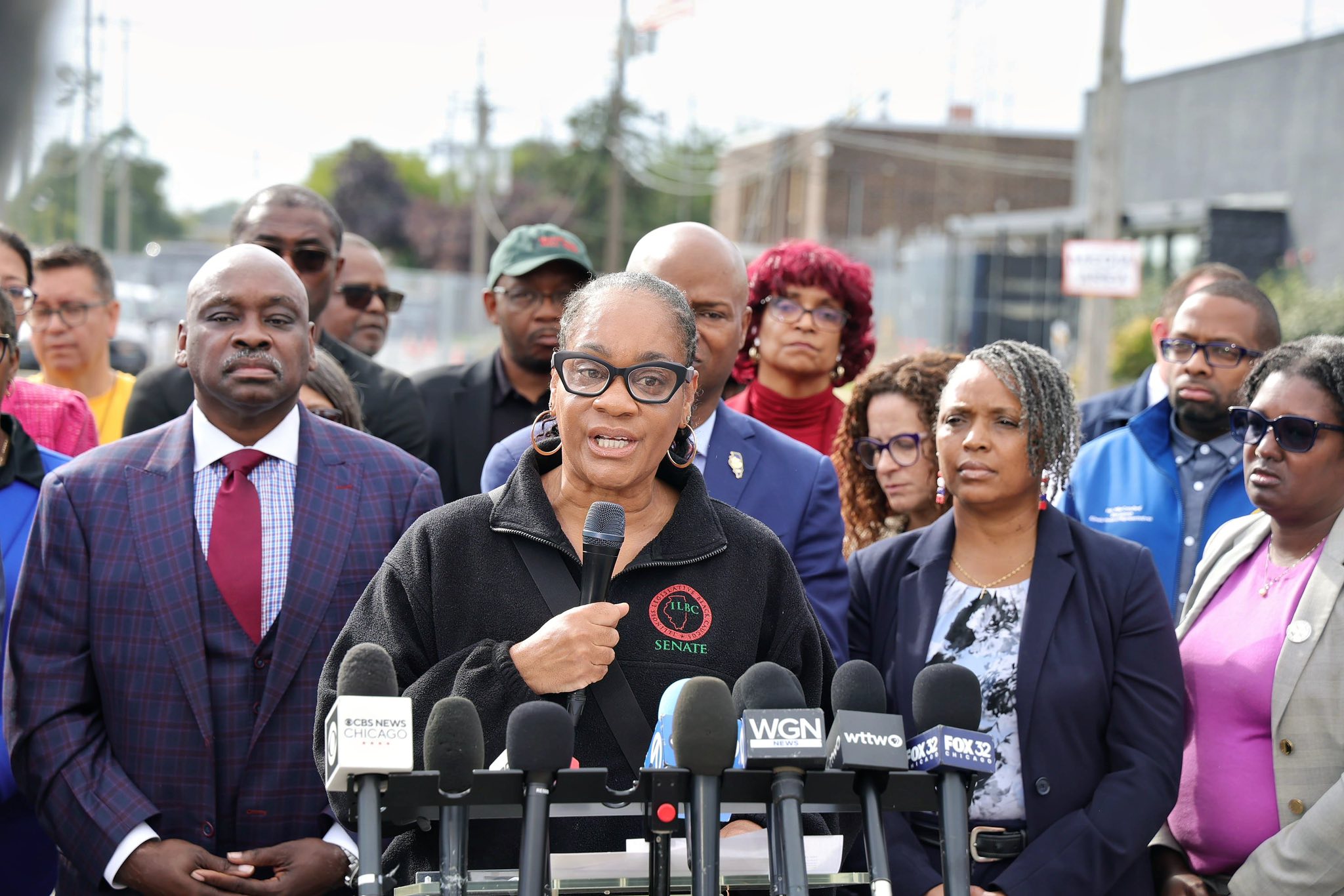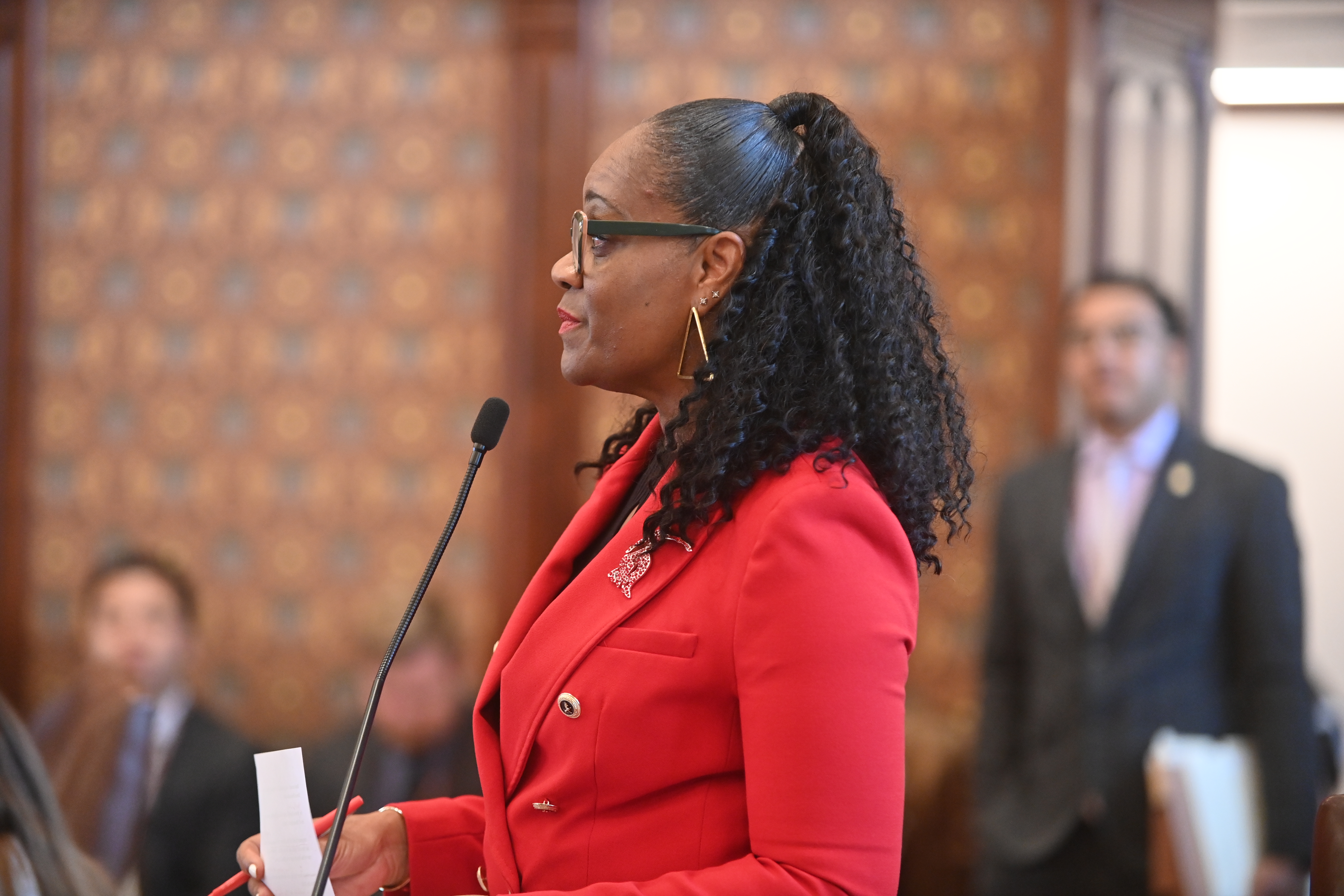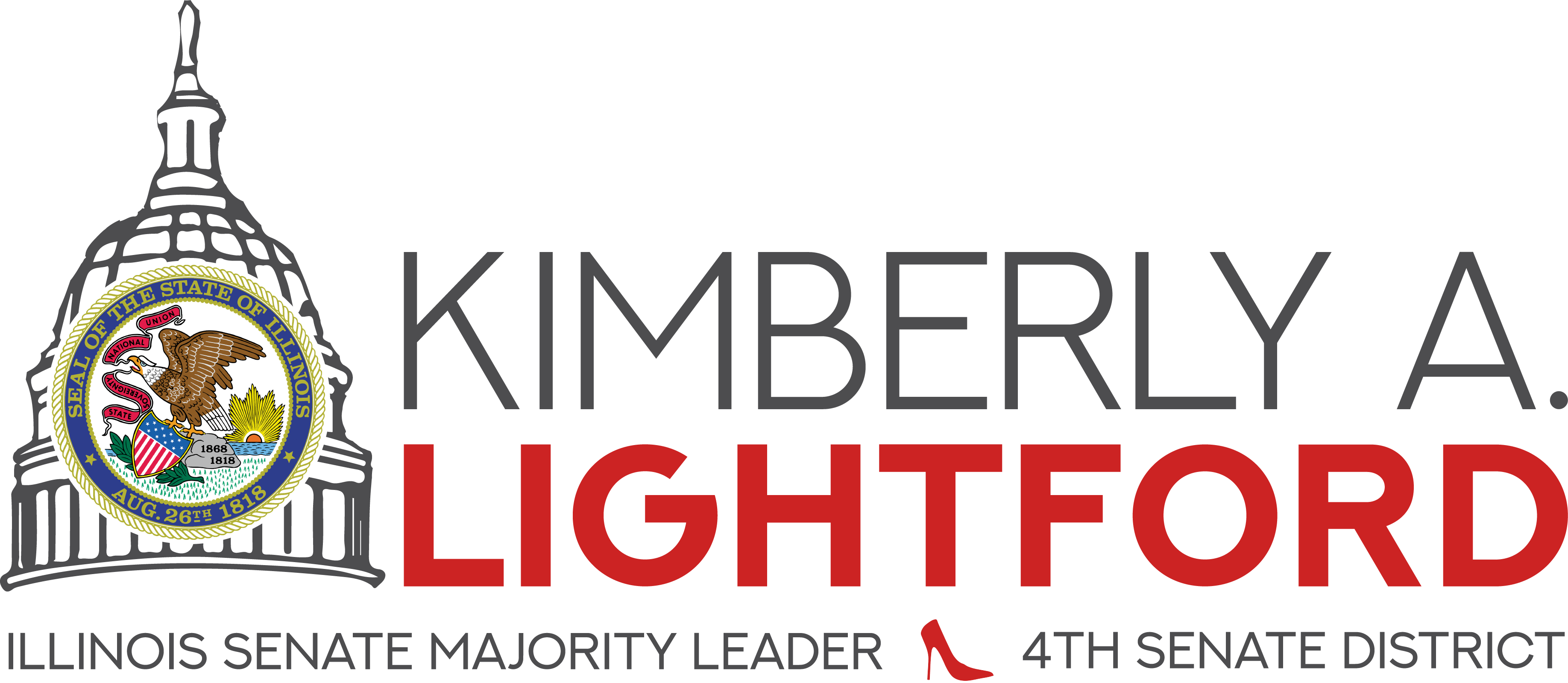- Details
- Category: News
SPRINGFIELD – State Senate Majority Leader Kimberly A. Lightford backed legislation aimed at safeguarding the constitutional rights of Illinois residents and maintaining secure access to essential public services during increased federal immigration enforcement operations in Chicago and throughout Illinois.
“What we're seeing isn't just happening somewhere else: it’s happening right here, in Chicago and Broadview, in our schools, in our hospitals and in our neighborhoods,” said Lightford (D-Maywood). “This is not who we are. This is not what Illinois stands for.”
House Bill 1312 would allow Illinois residents to bring civil actions against any person who deprives them of their constitutional rights under the Fourth Amendment of the United States Constitution, or Section 2 or Section 6 of Article 1 of the Illinois Constitution.
The bill would establish enhanced punitive damages for particularly egregious conduct, such as concealing identity with masks, failing to identify as law enforcement, not using body cameras, or deploying crowd-control weapons. It also would strengthen the Illinois Whistleblower Act to protect those who report violations and creates a 1,000-foot safe zone around courthouses with significant penalties for violations, including $10,000 in statutory damages.
The legislation further would require public colleges and universities to establish procedures for reviewing law enforcement access requests and would prohibit unauthorized disclosure of immigration status. Similarly, all Illinois hospitals would be required develop comprehensive policies for law enforcement interactions by early 2026, with $500 daily penalties for noncompliance. Licensed daycare centers would also be required to adopt policies for interacting with law enforcement, including parental notification and consent requirements before sharing children's information, while prohibiting disclosure of citizenship or immigration status unless legally required.
“When federal agents operate with masks and unmarked vehicles, when they turn hospitals into hunting grounds and schools into sites of fear, they aren't just violating the law - they're violating our most sacred values,” said Lightford. “This legislation is a shield for the vulnerable and a warning to those who think they can operate above our constitution.”
House Bill 1312 passed the Senate Thursday.
- Details
- Category: News

On Oct. 16, the U.S. Department of Agriculture informed states it will not fund the Supplemental Nutritional Assistance Program – also known as SNAP – unless the federal government reopens. This means a total of 1.9 million Illinois residents are at risk of losing food assistance benefits starting Nov. 1.
SNAP provides food benefits to low-income families to supplement their grocery budget so they can afford nutritious food essential to their health and well-being.
Impacts on Illinois
- The lapse could strip benefits from our most vulnerable Illinoisans – from children to older adults to our unhoused population.
- In Fiscal Year 2025, $4.7 billion in federal SNAP benefits were issued to Illinoisans, supporting over one million households, accounting for 1.9 million individuals total.
- The state administers more than $350 million in SNAP benefits each month, funding that feeds families in every corner of the state.
- Data from the Food Research and Action Center on SNAP issuance in Illinois indicates that:
- 44,217 veterans are participating in SNAP
- 37% SNAP households have older adults
- 45% SNAP households have children
- 44% SNAP households have a person with a disability
- SNAP supports more than 18,000 jobs in Illinois, across both the grocery and other supporting industries, including agriculture, manufacturing, transportation, and municipal services.
- According to the National Grocer’s Association, SNAP supports nearly $1 billion in Illinois wages. This lapse could have far-reaching consequences for grocery stores and jobs as fewer SNAP dollars circulate in local economies.
- Details
- Category: News

BROADVIEW – Senate Majority Leader Kimberly A. Lightford joined state and local officials and concerned community members to demand the fence around a facility in Broadview housing people accused of being in the country illegally be taken down immediately.
“Broadview is a community that believes in the dignity of every person — regardless of where they were born, what they look like, or what language they speak,” said Lightford (D-Maywood). “We believe that no one should live in fear, and no government agency should ever operate beyond the reach of the law or the light of truth.”
Lightford joined Illinois House Speaker Emanuel “Chris” Welch, among others, calling for the president to order the fence in front of the Broadview ICE facility to be taken down before a court-issued deadline of 11:59 p.m. Tuesday.
The fence was put up about three weeks ago by the Department of Homeland Security right in front of the ICE facility, and the fence is now restricting access to Beach Street. The Village of Broadview took DHS to federal court last week, and a judge agreed the fence must come down because it creates a public safety concern for first responders trying to access the area.
“To ICE — and to the president — hear this clearly: We will not stand by while you build walls to hide human suffering,” said Lightford. “We demand transparency. We demand accountability. And we demand that this fence be removed now.”
- Details
- Category: News
BROADVIEW – Senate Majority Leader Kimberly A. Lightford released the following statement regarding ongoing tensions in Broadview:
“I continue to stand in solidarity with the peaceful demonstrators who are gathering to advocate for humane immigration policies and the protection of families in our communities.
“We all firmly hold the same belief: No person should be targeted based upon the color of their skin. Chicago has long been a city that welcomes people of all backgrounds – and we must continue to uphold values of dignity, compassion and due process. Our community is strongest when all people can live without fear. I stand united in demanding justice and respect for the rights of all people.”
More Articles …
Page 1 of 127








